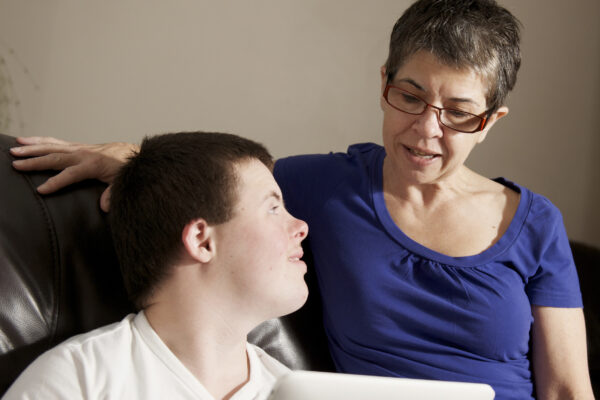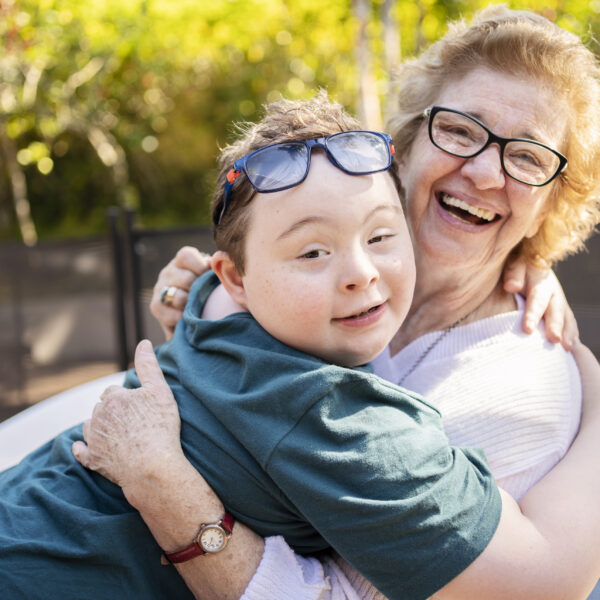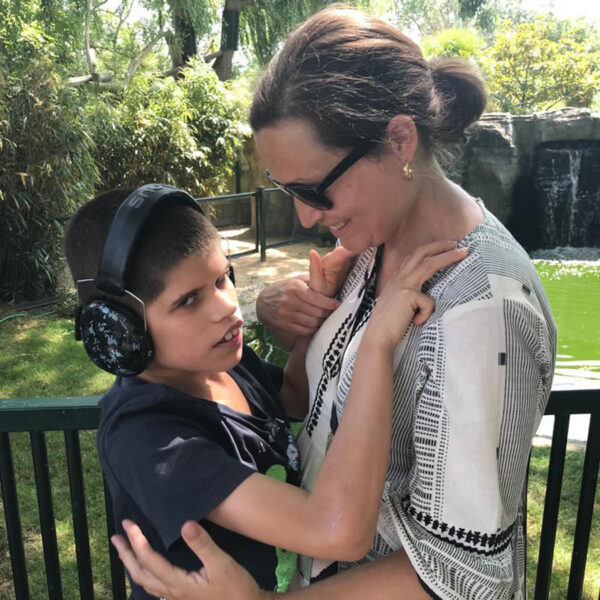Personal Independence Payment
What is PIP?
Personal Independence Payment or PIP is a benefit for working age people who face extra challenges carrying out everyday activities or getting out and about. PIP is not taxed or counted as income for means tested benefits. It’s not based on National Insurance contributions and can be paid both in and out of work.
Download our What is PIP fact sheet (pdf 710kb) for more information.
Who can claim PIP?
When a young person with additional needs reaches 16, they will no longer be able to claim Disability Living Allowance (DLA), and if they still have significant needs will need to apply for Personal Independence Payment (PIP) instead.
Even if your child is 15, and you have never claimed DLA before, it’s worth claiming now even if it’s only a few months before your child turns 16. Decisions on PIP claims can take 6 months or more and an award of DLA can run on past your child’s 16th birthday. You will still need to claim PIP as soon as you are invited to do so. Read more about claiming DLA
To make a successful PIP claim, you will need recent supporting evidence about your young person’s health conditions and/or disabilities, for example an Education, Health and Care Plan or recent reports from a health professional. If you don’t have this type of evidence. you might want to think about using some of their DLA to pay for independent assessments.
When to claim PIP
You cannot apply for PIP until you are 16, so there are special arrangements allowing current DLA awards to run on after the young person’s 16th birthday, until a decision is made on their PIP claim.
There is no automatic migration between DLA and PIP. At some point after your child’s 16th birthday, you will receive a letter from DWP inviting you to start a PIP claim. Young people with indefinite or lifetime awards of DLA will be the last to be reassessed under PIP.
As appointee, you need to act promptly as soon as the DWP writes to you or your child about PIP. If neither of you reply to the invitation to apply for PIP, their DLA award will be suspended four weeks later.
If a claim is made within four weeks after the suspension, the DLA award will be restored until a decision is made on the PIP claim. If you do nothing, your child’s DLA claim will end permanently eight weeks after they wrote to you. There are very limited appeal rights against this decision.
You can choose to make an application for PIP even if a young person had an indefinite award of DLA. This would make sense where a young person is likely to be awarded a higher rate under PIP than their current DLA award. For example, if they have high support needs throughout the day but not at night.
You can book onto a free Amaze workshop to help with your PIP or DLA claim.
See our Events page for a full list of all our workshops.
How is PIP awarded?
PIP uses an entirely new set of criteria, a points-based system to decide whether someone qualifies for the benefit, and if they do at what rate they will be paid. To make a successful claim for PIP, a young person needs to score 8 points to qualify for the standard rate of the component; 12 points or more qualifies them for the enhanced rate. You can find out how much the different rates are worth from the gov.uk website.
The PIP assessment focuses on a young person’s ability to carry out everyday activities. There are 12 activities: 10 daily living and 2 mobility.
The daily living activities include:
- Preparing food and drink
- Taking nutrition
- Managing therapy or monitoring a health condition
- Bathing and grooming
- Managing toilet needs or incontinence
- Dressing and undressing
- Communicating
- Engaging socially
- Making financial decisions
The mobility activities are:
- Planning and following a journey
- Moving around
Descriptors and points
You score points when you are not able to complete an activity ‘reliably’; and ‘reliably’ means safely, to an acceptable standard, repeatedly and in a reasonable time.
Each of the 12 activities has a set of ‘descriptors’ that carry different scores. For example, in the dressing activity, you will score 0 points if you can dress and undress unaided, 2 points if you need prompting, 4 points if you need assistance to dress your upper body and 8 points if you cannot dress or undress at all. The higher the level of difficulty you describe, the higher the score. You can only be awarded points for one descriptor in each activity, so it’s worth giving as clear a picture as you can.
To get any points for an activity, you need to satisfy at least one of the descriptors for at least 50 percent of days. If a claimant has good and bad days, it’s important to explain this. Describing what they can do two days out of seven, versus what they can manage on the other five, helps the assessor work out which descriptor (and so how many points) best reflects a claimant’s abilities. Points are awarded for the descriptor that best fits 50 percent of the time.
We strongly advise you make yourself aware of the descriptors and how points are awarded.
How to start a PIP claim
PIP claims begin over the phone. Ring the DWP on 0800 917 2222. You can call on behalf of a young person but they should be with you when you do this.
It’s worth preparing before you ring. You will be asked for basic details like the young person’s name, address, date of birth and main area of difficulty. You will also need to give their National Insurance number, their doctor’s or health worker’s names and have information to hand about time they have spent abroad, in a residential school, care home or hospital. The DWP will also ask for bank or building society details.
Use the time while you are waiting for the claim pack to gather as much evidence as you can. If you can’t find your own copies of reports or assessments, ring the advice givers now and get more sent. If you have no evidence like this, but feel a young person still has very significant extra needs, think about paying for an independent assessment.
As long as a young person has had the additional needs for at least three months, expects to have the same needs for at least the next nine months and meets the residency test, they will be sent a ‘How your condition affects you’ form. The claim pack is personalised. It comes with notes to help you fill it in.
PIP forms are long and daunting and you may want to get advice from Amaze or another organisations. If so, it’s OK to ring DWP and ask for an extension if you need more time to get advice. See more about Getting help with DLA below.
Special rules for life limiting illness
If a young person is diagnosed with a life limiting illness and is unlikely to live more than six months, they can claim PIP under Special Rules. A young person will automatically be awarded the high rate of the daily living component and doesn’t need to meet retrospective or prospective tests.
Though claiming benefits is likely to be the last thing on your mind if you’ve just been told your son or daughter has such a poor prognosis, it is a good idea to try to claim it on their behalf as soon as you feel able: PIP can’t be backdated to before the day you claim it – even in such distressing circumstances.
A young person’s consultant will need to complete an SR1 form. The DWP aims to make decisions about these claims within eight days of receiving the form.
Involving young people in their PIP claim
At 16, wherever possible, it’s important that young people themselves are involved in their claim for Personal Independence Payment (PIP). Unless a young person feels positively about identifying as disabled, it’s unlikely a claim will be successful. Most young people will now have to participate in further assessment, either by telephone or in person, as part of their claim, and they’ll want to own what’s written on their claim pack.
Amaze is able to offer some direct support with PIP applications to young people up to the age of 20 who live or go to college in Brighton & Hove. For other sources of support with PIP claims, see our “Get help with filling in a PIP form” section.
PIP assessments
Most claimants now have to participate in further assessment as part of their claim for Personal Independence Payment. The assessor will want to hear for themselves how what is written on the PIP form matches up with the person they are speaking to. The assessment is likely to be a phone call but it may be a face to face meeting. These were suspended during the pandemic and haven’t yet been reinstated.
Any assessment can feel overwhelming but there is a lot you can do to make it a fair and a positive experience.
A young person should always have someone to support them at the assessment. Think about who’s the best person to ask. It needs to be someone who is both ‘on their side’ and who understands how their disability impacts on everyday life. This can be a friend, support worker, social care practitioner or someone in your family.
Remember, especially if a young person is already getting DLA, that the DWP and the organisation arranging the assessment needs to make reasonable adjustments to accommodate a young person’s additional needs. So, for example, anyone who struggles with anxiety using public transport should not be asked to travel in the rush hour for the assessment. Anyone with augmentative communication needs should be able to meet with an assessor with relevant experience. You do not have to meet in an office, you can ask that the meeting is held at your home, or the young person’s school or college if that will make it easier for them. Be sure to explain your reasons for making this request.
If a young person has very significant mental heath issues and it would be detrimental for their wellbeing to participate in an assessment, it’s worth asking their mental health practitioner to write a supporting letter to make this clear. It’s unlikely that severely disabled young people will be asked to attend any assessment. Nevertheless, be sure to send as much supporting evidence, and give as detailed an account of how they cope with daily activities, their communication or access needs as you can, to avoid unnecessary interviews.
Download our PIP assessments fact sheet (pdf 790kb)
Challenging DWP decisions
If your child’s claim for Personal Independence Payment (PIP) is turned down, or you don’t get the result you expected, don’t give up. Over 50 per cent of decisions are overturned when you ask another decision maker to look at the claim again, and over 80 per cent of appeals are successful.
You can also ask for a review if you are receiving the benefit at a lower rate and your condition alters and you need more help, or if the decision was correct at the time but circumstances have changed.
Be aware though, the Department for Work & Pensions (DWP) can look at any part of the award again, even a part you are happy with. So it’s important to seek advice before asking for a decision to be looked at again.
The Decision Notice will explain what to do next if you do not agree with a decision and the date by which you need to reply. It’s important to stick to timescales. You need to alert DWP that you wish to challenge a decision within a month of the date on the letter.
Even though a PIP Decision Notice is laid out activity by activity, with a descriptor and a score for each, this is still too little detail if you disagree with any part so you will need to find out more.
Contact the DWP. Ask for a copy of the healthcare assessor’s report. This is what they will have written up after a telephone consultation or a face-to-face meeting. If you ask for this, you get an extra two weeks to tell DWP that you disagree with some, or all, of their decision. You can explain what you disagree with over the phone, but we think it’s best to do this in writing so you can be sure what has been recorded.
If you did not keep a copy of your young person’s PIP claim and supporting evidence, ask for copies to be sent back to you.
You can request a Mandatory Reconsideration at a later date, but any change in decision may not be backdated.
While you are waiting for the DWP to respond, look back at our Tips for claiming PIP fact sheet (pdf 710kb) and the descriptors for each activity. In our experience, it is not unusual for the organisation contracted to do the assessment, or DWP, to have misapplied the descriptors and points system. Now is the time to get clear about which descriptor you believe best fits your circumstances and therefore how many points you should have been awarded for a particular activity.
Reconsiderations and appeals
Mandatory reconsideration
It may be that having done your research into how rates are awarded, and seen the healthcare professional’s report, you are now satisfied that your (or your child’s) PIP award is fair.
If you believe a decision is unfair, however, now is the time to ask for a Mandatory Reconsideration. This is when another decision maker looks at your child’s claim and all the evidence again.
Stick to timescales. But remember you only need to ring DWP to request a mandatory reconsideration. You can follow up your request in a detailed letter a bit later.
Go through all your paperwork carefully; notice if there is any difference of opinion between what you put on the claim pack or what happened at the assessment and the healthcare professional’s report. Consider whether any evidence has been disregarded or if you need to gather more reports to support what you say. Ask for extra time if you need it and say when you will write back to them. Otherwise a decision may be made straight away. You can get more tips about making the case for a mandatory reconsideration in our PIP Reconsiderations and Appeals fact sheet (pdf 690kb)
Post your request securely, for example by Royal Mail Tracker or Special Delivery, to be sure your Mandatory Reconsideration request letter and other evidence arrives safely.
The DWP has 13 weeks to look at the claim again. But they may take much less time: so let them know if you need more time to gather extra information.
Your right to appeal a PIP decision only arises once a different decision maker has reviewed all the information and you have the outcome in writing. Hopefully, the first decision will be revised in your favour, and you won’t need to go to appeal.
Whether or not the decision is changed, you will get a Mandatory Reconsideration Notice. If you are not happy with the decision, you will need this to appeal.
Once you have a Mandatory Reconsideration Notice you now have one calendar month to submit your appeal.
Appeals
Appeals are made directly to an independent tribunal. You will need to fill in a SSCS1 notice of appeal. You can download this from www.gov.uk or ring the DWP on 0800 121 4600 to get one posted out.
Say clearly what part of the decision you disagree with and why. Keep a copy. Send it back within the timescale. You will get a pre hearing questionnaire. It’s best to opt for a face to face hearing, as the chances of an outcome in a young person’s favour is much greater if you do.
You do not need to take someone like a solicitor to represent your young person. Experience of PIP appeal tribunals tells us that young people themselves, and their parents and carers are generally best placed to ‘tell it how it is’.
Remember, the Tribunal will want to know how things were at the time you put in the claim. Appeals can take a year to be heard, so make time to read through your ‘bundle’ of papers several times. What’s important is how things were at the time you made the claim so it’s worth refreshing your memory.
If you have any more supporting evidence, send it in at least a week before the hearing. If you only get a report the day before, take it with you and explain about this. In our experience the tribunal panel will accept evidence on the day.
Hearings are informal and you will be able to comment on and add to what your young person says. It’s always best to prepare again as you did for the meeting with the healthcare assessor.
There are time limits for reviews and appeals so always get advice as quickly as possible. In some cases, Money Advice Plus, or the Citizen’s Advice (www.citizensadviceeastsussex.org.uk or www.cabrightonhove.org.) may be able to help you with an appeal, but you may need to meet certain criteria. Another option for East Sussex parent carers is Hastings Advice and Representation Centre, and Brighton and Hove parents are sometimes able to access advice and support with appeals from the council’s Welfare Rights team, or from a charity like Possability People, BUCFP, or St Luke’s Advice Service.
Download our PIP Reconsiderations and appeals fact sheet (pdf 690kb)
Get help with PIP from Amaze
Young people and their parents or carers in Brighton & Hove and East Sussex can get help with claiming Personal Independence Payment (PIP) and Disability Living Allowance (DLA) from Amaze. We offer:
- online advice, fact sheets and targeted resources to help you make a claim
- regular Zoom workshops on claiming DLA or PIP
- targeted support to families who face extra challenges, via our DLA and PIP Advice Service

Other sources of help
If Amaze is unable to help you, we may be able to point you in the direction of other services that offer support with benefits applications, like Possability People, Citizen’s Advice (East Sussex Citizens Advice (citizensadviceeastsussex.org.uk) Citizens Advice Brighton and Hove (cabrightonhove.org), St. Luke’s Advice Service, BUCFP or Hastings Advice and Representation Centre.
Disability Rights UK produces a helpful guide. You can download a copy from their website.
It’s less likely that an advisor from a general advice agency will have detailed knowledge of your young person’s disability and how this impacts on their everyday life. With this in mind, go well prepared. Make some notes before your appointment, take photocopies of any reports and assessments you have, and especially your young person’s EHC plan if they have one. You could also take any useful resources that you have from us.
Other disability organisations offer useful advice about claiming PIP for young people with specific chronic illnesses, disabilities or impairments. Their websites can be good places to visit, especially if a young person has new or emerging needs. Try our links sections for details of the main disability organisations in the UK.















